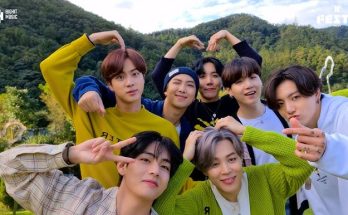The sports media landscape is often a place where professionalism, personal expression, and public scrutiny intersect in complicated ways. The recent decision by PHNX Sports to fire Suns reporter Gerald Bourguet underscores just how delicate this balance can be, particularly in an era where social media amplifies every opinion, reaction, and controversy. According to AZ Central, Bourguet was dismissed after making a series of posts on social media regarding the death of political commentator Charlie Kirk. His posts, which expressed disdain for Kirk and rejected the idea of mourning his passing, quickly became the center of debate online, drawing polarized reactions and ultimately leading PHNX and its parent company, ALLCITY Network, to sever ties with him.
The chain of events began after news broke of Charlie Kirk’s death. Kirk, known as a high-profile conservative activist and founder of Turning Point USA, had been a lightning rod for political and cultural debates during his career. His influence in conservative political spaces, particularly among younger demographics, made him both celebrated and vilified depending on one’s perspective. Following his death, tributes and condemnations poured in across social media, reflecting the polarized perception of his life’s work. It was in this charged environment that Bourguet, a reporter primarily focused on Phoenix Suns coverage, made comments that diverged sharply from the tone of many public figures.
In his first post, Bourguet wrote, “‘Political differences’ are not the same thing as spewing hateful rhetoric on a daily basis, and refusing to mourn a life devoted to that cause is not the same thing as celebrating gun violence. Just so we’re 100% clear on that.” This message framed his position that declining to grieve Kirk’s death was not equivalent to celebrating violence, a distinction he appeared intent on emphasizing. For Bourguet, the issue seemed to be one of principle: that individuals who promote what he perceived as harmful rhetoric should not automatically be granted respect in death if their words and actions were, in his view, destructive in life.
Bourguet went further in a subsequent post, writing: “If you’re saddened by today’s ‘political violence,’ horrified by the video, or repulsed by my response, ask yourself why your reaction was different when it came to school shootings, mass deportations or the HUNDREDS of videos of horrific murders in Gaza (which Kirk cheered on).” This comment connected Kirk’s politics to broader issues, including school shootings, immigration policies, and violence in Gaza, suggesting a perceived hypocrisy in how people react to certain tragedies compared to others. By invoking these topics, Bourguet broadened his critique beyond Kirk as an individual, calling attention to systemic violence and the ways in which reactions to it are often shaped by political affiliation and selective empathy.
In a third post, he added, “Truly don’t care if you think it’s insensitive or poor timing to decline to respect an evil man who died. Too many of you are more concerned with being polite and appearing to be good people rather than showing some damn backbone and standing on (principle) to condemn hate.” Here, Bourguet underscored his rejection of performative civility, arguing that showing respect for someone he viewed as a promoter of hate was itself a moral compromise. These words highlighted his unwillingness to temper his views for the sake of decorum, even in the immediate aftermath of someone’s death.
The reaction to Bourguet’s posts was swift and polarized. On social media, supporters praised his willingness to speak out, framing his comments as a courageous stand against hypocrisy and harmful ideologies. They argued that his points, while blunt, reflected real frustrations with how society selectively applies compassion and outrage. Critics, however, condemned his comments as insensitive, inflammatory, and inappropriate, particularly given his role as a public-facing journalist. For them, his words crossed a line, reflecting poorly not only on him but also on the outlet that employed him. The debate exemplified the broader tension between personal freedom of expression and professional responsibilities in the age of social media, where the line between private individual and public representative is increasingly blurred.
PHNX Sports and ALLCITY Network quickly moved to distance themselves from Bourguet’s statements. In an announcement posted on X, the company wrote: “The opinions expressed by our employees do not represent the views of PHNX or ALLCITY Network. We take matters involving violence very seriously and are committed to ensuring that ALLCITY remains a safe place for our employees and community alike. We have addressed this matter with the individual and made the decision to part ways.” The statement reflected a familiar pattern in corporate communications during public controversies: emphasizing organizational values, distancing the company from the individual’s words, and affirming a commitment to safety and community.
The phrase “safe place” in the company’s statement stood out, reflecting the sensitivity organizations must show in managing both internal workplace dynamics and external public perception. For PHNX and ALLCITY, the concern was not simply about the optics of one employee’s social media activity but about the broader implications for workplace culture, audience trust, and brand reputation. In an industry where media outlets rely heavily on credibility, trust, and audience relationships, the decision to terminate Bourguet was as much about preserving the organization’s public standing as it was about responding to internal concerns.
For Bourguet, the consequences were immediate and severe. Losing his position as a Suns reporter at PHNX marked the end of a significant chapter in his career. Covering an NBA team requires consistent access, strong relationships with players, coaches, and staff, and credibility with readers and fans. Being removed from that role not only impacts his professional trajectory but also raises questions about how journalists can navigate personal expression in the digital age. Bourguet’s firing illustrates the professional risks that journalists face when their personal views, particularly on controversial political or cultural issues, become public and spark backlash.
This incident also reignited a broader debate about the expectations placed on journalists and media professionals regarding personal expression. Should reporters, especially those covering sports rather than politics, be restricted in what they can say about political figures? Is it fair to expect journalists to suppress personal convictions in order to maintain the appearance of neutrality, or does that expectation itself undermine authenticity and honesty? These questions are particularly pressing in an era when social media encourages individuals to share personal opinions, often in real time, on unfolding events. For some, Bourguet’s comments represented an important moral stance; for others, they represented a professional lapse that justified termination.
The case also reflects a larger trend in which companies are increasingly pressured to respond swiftly to public controversies involving their employees. In the age of social media, organizations face immediate and widespread scrutiny when employees’ actions or words spark outrage. Failure to act quickly can be perceived as tacit approval, while decisive action can help contain reputational damage. For PHNX and ALLCITY, the decision to fire Bourguet was likely influenced by the rapid pace of online discourse, where silence can be interpreted as complicity and where public relations crises can escalate in a matter of hours.
Supporters of Bourguet argue that his comments, while sharp, were not a celebration of violence but a refusal to mourn someone whose rhetoric they view as harmful. They suggest that firing him for expressing his personal views sets a troubling precedent, potentially chilling free expression among journalists who fear professional repercussions. Critics counter that his role as a public representative of PHNX required him to exercise restraint, particularly when commenting on sensitive matters like death and political violence. For them, the issue is not about his right to personal opinion but about the responsibilities that come with being a journalist affiliated with a respected media outlet.
The firing of Bourguet also raises questions about the boundaries between professional and personal identity in the modern media landscape. Sports journalists, like those in other beats, often build their careers not only through their reporting but also through their online presence. Social media allows them to engage directly with fans, build personal brands, and cultivate followings that extend beyond their employer’s platforms. However, this dual role as both professional journalist and personal content creator creates vulnerabilities when personal opinions clash with organizational values or public expectations. Bourguet’s firing illustrates how quickly the balance can tip when a journalist’s personal views are deemed incompatible with the image a company wishes to project.
This situation also highlights the role of public perception in shaping outcomes. Companies like PHNX and ALLCITY must weigh not only the content of an employee’s statements but also the reactions of audiences, advertisers, and stakeholders. In a polarized political climate, any response is likely to draw criticism from one side or another, making such decisions inherently fraught. By choosing to part ways with Bourguet, PHNX prioritized protecting its broader reputation, even at the cost of losing a reporter who had built credibility within the Suns beat. For the company, the calculus was likely about long-term brand sustainability rather than short-term controversy.
In the aftermath of this decision, the conversation will likely continue on multiple fronts. For journalists, Bourguet’s firing is a cautionary tale about the risks of personal expression on social media, particularly in moments of national controversy. For media organizations, it is a reminder of the importance of clear policies regarding employee conduct online and the challenges of balancing free expression with brand protection. For the public, the incident raises deeper questions about how society navigates grief, morality, and civility in the face of polarizing figures and events.
What is clear is that this incident is not just about one journalist’s comments but about the broader dynamics of media, politics, and public discourse in 2025. Social media continues to blur the lines between personal and professional, private opinion and public statement, individual identity and organizational affiliation. In such an environment, the stakes for every post, comment, or reaction are heightened, with the potential to reshape careers, organizations, and public debates in profound ways. For Gerald Bourguet, the fallout has already been career-altering. For PHNX and ALLCITY, the decision to part ways with him will likely remain a point of discussion as audiences, fans, and colleagues grapple with what this controversy says about journalism, accountability, and the future of expression in sports media.



